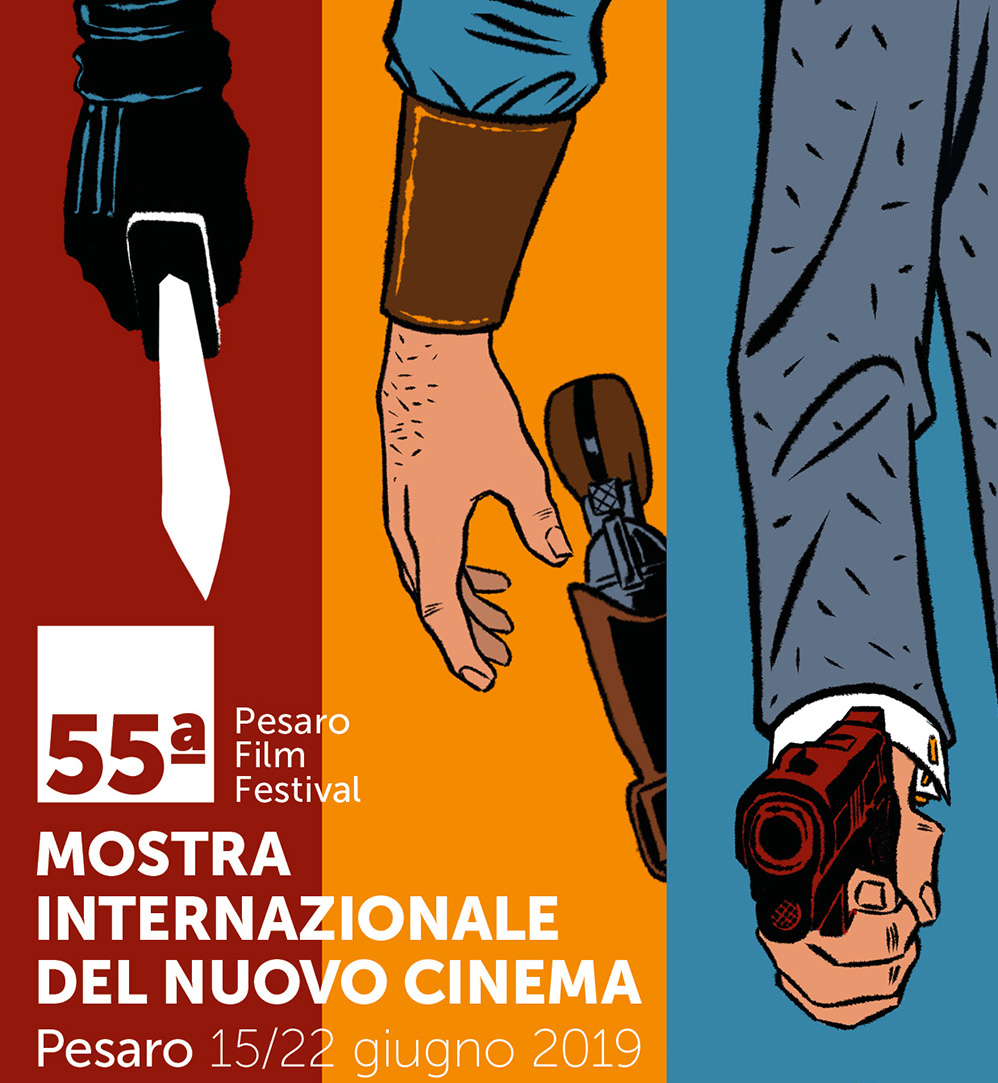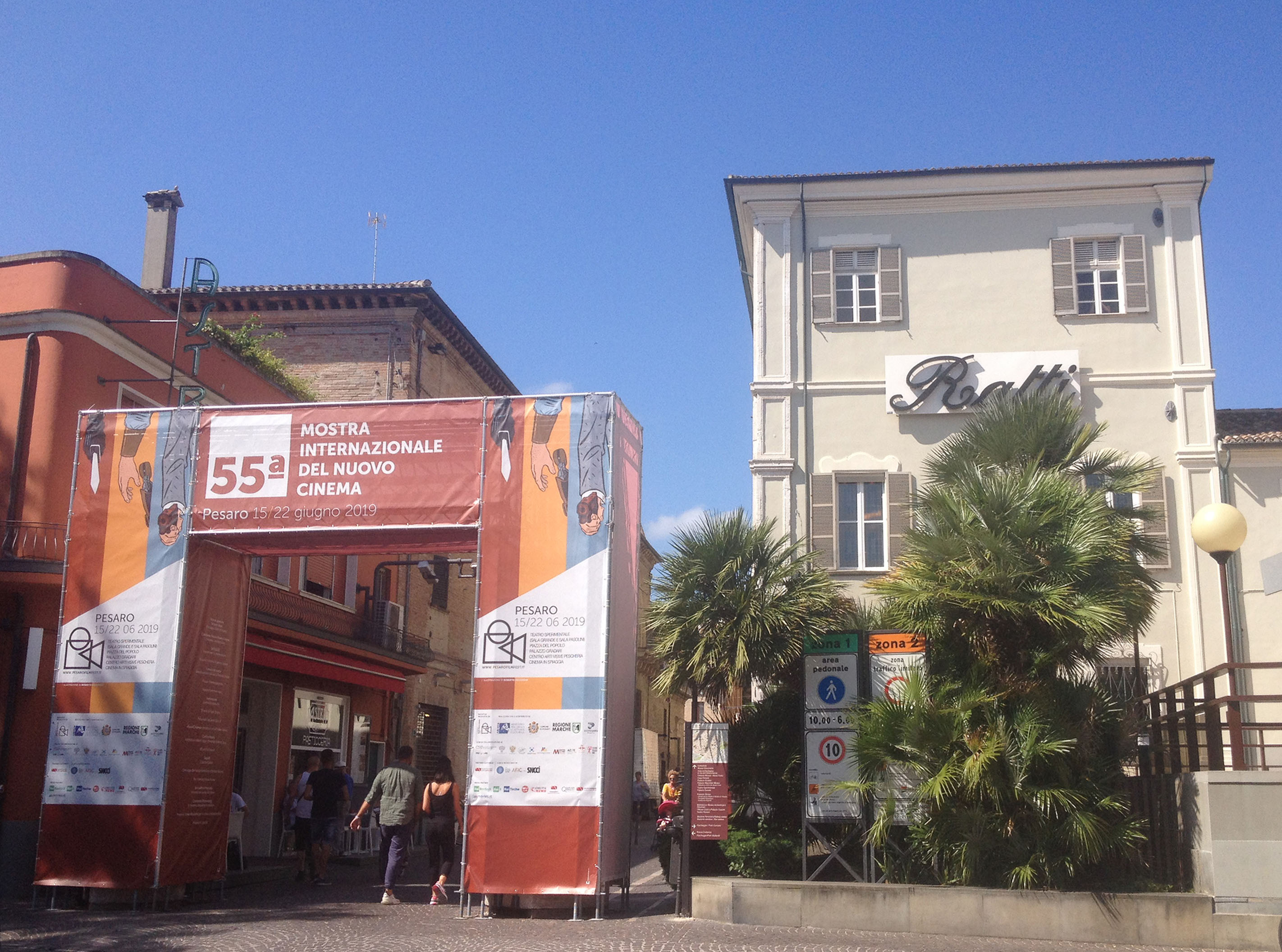
- Festivals
New Cinema at Pesaro Film Festival
Now in its 55th edition, the Pesaro Film Festival (Mostra Internazionale del Nuovo Cinema), founded in 1965 by Lino Miccichè, is the second longest running festival in Italy, after Venice, which started in 1932 as part of the Biennale. From the start, its main goal has been to present the first or second works of new filmmakers from all over the world in order to promote growth and evolution in the art of cinema. As co-founder Bruno Torri stated, this formula was later imitated by festivals such as Torino, founded in 1982 by Gianni Rondolino, and, I would add, Bari Fest started in 2010 by Felice Laudadio.
This reporter holds a special affection for this festival because my first professional job as a film critic in 1970 was to help organize Pesaro from their offices in Rome, as part of a team composed by Adriano Aprà, Enzo Ungari, Franco Ferrini, creators of the magazine Cinema e Film (1966-1970). We examined each of the 21 movies presented at the 6th edition, frame by frame at large flatbed moviolas, for notebooks called Quaderni di documentazione.
Attending the festival 50 years later, as a representative of the Hollywood Foreign Press as per one of the missions of our association (“to promote cultural exchange between HFPA members and entertainment professionals of other nations”), it was enriching to speak with young women filmmakers such as Anxos Fazáns, Andrea Jaurrieta, Diana Toucedo, and view their first films, A estación violenta (A Wild Season), Ana de día (Anna by Day), Trinta lumes (Thirty Souls), and encourage them to submit their work for Golden Globe consideration.
It was equally interesting to hear a presentation by Cristian Della Chiara and Gianmarco Torri about the creation of the Pesaro Film Festival Historical Archives, covering the first 50 years, after the documentation, publications, photographs, and videos were moved from their Rome offices to Centro Arti Visive (Center for Visual Arts) in Pesaro, and were cataloged by archivist Arianna Zaffini.
I had dinner conversations with my long-time friend Adriano Aprà, who served as festival director from 1990 to 1998, and this year is presenting his new book, Fuorinorma. La via neosperimentale del cinema italiano (Outside of the Norm. The Neo-experimental Track of Italian Cinema), and a documentary on his life as a film critic, Adriano Aprà Autoritratto (Self-Portrait) directed by Pasquale Misuraca.

A view of Pesaro, Italy.
elisa leonelli/hfpa
A book by Pedro Armocida, Ieri oggi e domani, il cinema di genere in Italia (Yesterday, Today and Tomorrow, Genre Cinema in Italy) accompanied a retrospective of Italian horror-thrillers, spaghetti westerns and police dramas, illustrated by three graphic panels in the festival poster designed by Roberto Recchioni. This series included Sergio Leone’s Per un pugno di dollari (For a Fistful of Dollars, 1964), restored by Martin Scorsese’s Film Foundation with funds donated by the HFPA.
On opening night, Bruno Torri reevaluated the body of work of director Franco Zeffirelli, who had passed away that day. Creative director Pedro Armocida presented Butch Cassidy and the Sundance Kid, on its 50th anniversary, as a buddy movie western that was not liked by the critics at the time but loved by the public. It was nominated for four Golden Globes and won one for Best Score. It was a pleasure to see it again on the big screen in Pesaro’s main square, Piazza del Popolo, with a large audience of local citizens and festivalgoers.
The ancient city of Pesaro on the Adriatic coast, founded by the Romans in 184 BC as Pisaurum, was chosen by Bruno Torri as the site of the festival because of the cooperation offered by its socialist Minister of Culture. The city’s unwavering support for the festival continues to this day. The festival locations are all in the medieval center with cobblestone streets, churches and palazzi. By the beach stands the Villino Ruggeri, a jewel of Art Nouveau architecture built in 1907 in the Liberty floral style, across from the turn-of-the-century Hotel Vittoria. A new Museo Rossini just opened in Pesaro, the birthplace of opera composer Gioachino Rossini, an exceptional example on how to present musical history for a modern audience.
The festival closing night, included an homage to Bernardo Bertolucci (who passed away on November 26, 2018), encompassing all of his films that were presented at the Pesaro Film Festival.